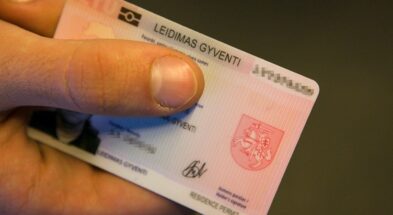As marriage is a legally recognised and culturally significant union between two individuals, it is important to register it under legal provisions. Marriages often have no geographical boundaries. For Non-Resident Indians (NRIs), tying the knot in their homeland holds a special significance. However, navigating the legalities of NRI marriage registration in India can be a daunting task, often requiring a comprehensive understanding of the necessary documents. It is important to have a clue about the essential documents required for NRI marriage registration in India, shedding light on the process and its significance.
1. Passport and Visa
The cornerstone of any NRI marriage registration process is the validation of the individuals’ identities. Both partners must provide copies of their passports, reflecting their identity and citizenship. Additionally, valid visas or residency permits should be submitted, underscoring the legality of their stay in the respective foreign country.
2. Proof of Address
Establishing a residence is pivotal in the documentation process. NRIs should furnish documents such as utility bills, rental agreements, or property deeds to verify their addresses. These documents serve as a link between the individuals and their Indian residence, a crucial aspect of legalising marriage.
3. Birth Certificates
Authentic birth certificates of both parties, with proper notarization, are essential for NRI marriage registration. These certificates validate the age and identity of the individuals seeking to marry, ensuring compliance with Indian legal norms.
4. Single Status Affidavit
A sworn affidavit affirming the unmarried status of both parties is a significant document. This affidavit, issued by the respective country’s embassy or consulate, assures that the individuals are legally eligible for marriage under Indian law.
5. Passport-sized Photographs
Passport-sized photographs of the couple are integral for identification purposes throughout the registration process. These photographs should be recent and meet the stipulated requirements.
6. NOC from Parents
If either or both of the partners are below the legal marriageable age (18 for females, 21 for males), a No Objection Certificate (NOC) from their parents or legal guardians is necessary. This document acknowledges the consent of parents to the marriage.
7. Divorce Decree or Death Certificate (if applicable)
In the case of previously married individuals, submitting a divorce decree or death certificate (if the previous spouse is deceased) is essential. These documents confirm the dissolution of the previous marriage, allowing for the lawful union of the individuals in question.
8. Legalised Affidavit of Support
For NRI spouses, an affidavit of support, signed by the Indian partner, assures financial responsibility towards the NRI partner during their stay in India. This is a crucial step in ensuring that the NRI partner’s welfare is safeguarded.
NRI marriage registration in India involves a meticulous collection of documents to uphold legal validity and authenticity. These documents substantiate the identity, age, and marital eligibility of the individuals seeking to wed. Adhering to the documentation requirements not only streamlines the process but also assures the couples of a legitimate and recognized marriage under Indian law. As NRIs traverse the journey of marriage registration, having a comprehensive grasp of the necessary documents paves the way for a joyous and legally sound union.



















